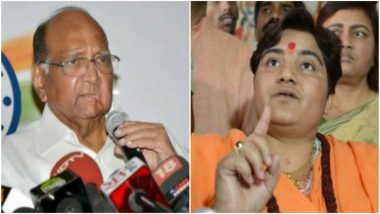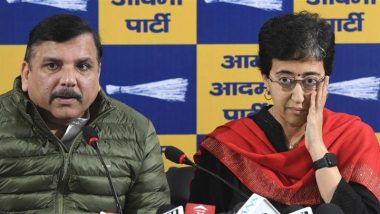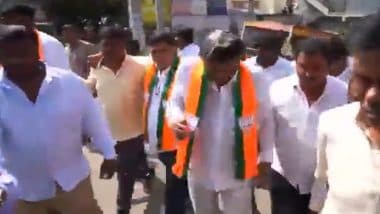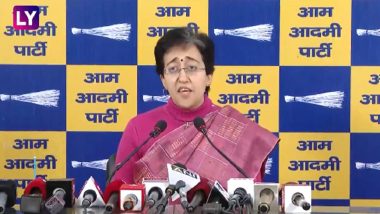New Delhi, June 10: Giving ticket to a person accused of triggering bomb blasts is an attack on democracy, said Nationalist Congress Party (NCP) chief Sharad Pawar on Monday."Giving ticket to a woman on whom there are serious charges related to the Malegaon bomb blast is an attempt to break the democracy. It is about the woman who got selected from Madhya Pradesh," Pawar told reporters here.
The NCP chief and Rajya Sabha MP was attacking the BJP and Bhopal MP Pragya Singh Thakur who he accused her of involvement in the Malegaon blasts September 2008 that took several lives. Pawar said he could not believe that a Muslim could conduct blasts on 'Juma' which is considered a sacred day by the community. He added that he had objected to Muslims getting arrested in relation with the case following which Mumbai's Anti-Terrorist Squad (ATS) chief Hemant Karkare had arrested Pragya Thakur. Nisar Sayyed, Father of Malegaon Blast Victim, Moves NIA Court Against Sadhvi Pragya Thakur Being Fielded by BJP From Bhopal.
"The Malegaon bomb blasts happened in a Masjid on Friday. I could not believe that a Muslim could conduct blasts on 'Juma', that is why I objected to the people first picked up by the agencies. Then (Hemant) Karkare arrested the one who will sit in Parliament during President's address," he said.
Last week, Thakur appeared before NIA Judge Vinod Padlakar in a special NIA court where she was questioned in relation with the Malegaon blasts. Besides the Bhopal MP, the other accused in the case are Lt Col Prasad Purohit, Major (retired) Ramesh Upadhyay, Sudhakar Dwivedi, Ajay Rahirkar, Sameer Kulkarni and Sudhakar Chaturvedi.
They have been charged under various sections of the Unlawful Activities Prevention Act (UAPA) and the Indian Penal Code (IPC). The charges include sections 16 (committing terrorist act) and 18 (conspiring to commit terrorist act) of the UAPA and sections 120 (b) (criminal conspiracy), 302 (murder), 307 (attempt to murder), 324 (voluntarily causing hurt) and 153 (a) (promoting enmity between two religious groups) of the IPC.








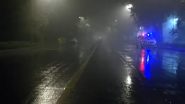




 Quickly
Quickly









